Make-up artists: Concept and massive earning potential
Various key considerations to keep in mind as a makeup artist.
1. Skill and Technique
Master various techniques, including:
– Contouring
– Highlighting
– Blending
These skills will make your work stand out.
2. Product Knowledge
Familiarize yourself with:
– Different products
– Ingredients
– How products work with various skin types
Many clients have sensitive skin, so it’s crucial to understand product interactions.
3. Client Consultation
Communicate with clients to understand their:
– Preferences
– Skin types
– Allergies
This will help create a personalized look.
4. Hygiene Practices
Maintain strict hygiene standards to:
– Prevent infection
– Avoid allergic reactions
5. Portfolio Development
Build a portfolio by:
– Displaying your work
– Sharing high-quality photos
– Showcasing your makeup qualifications
This will attract potential clients.
6. Networking
Connect with other professionals, including:
– Makeup brands
– Photographers
– Hairstylists
– Fashion designers
Collaborate to expand your opportunities.
7. Business Skills
Consider learning about:
– Pricing
– Marketing
– Managing finances
These skills are essential for a successful business.
8. Continuous Learning
The beauty industry is constantly evolving. Stay up-to-date by:
– Attending workshops
– Taking classes
– Participating in online courses
This will keep your skills sharp and ready for new challenges.
Materials and tools
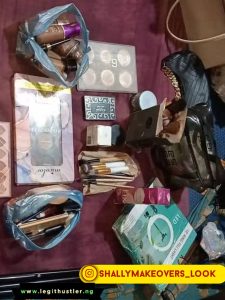
To deliver exceptional makeup services, you’ll need a range of tools and supplies. These can be categorized into:
1. Makeup Products
– Foundation (various shades)
– Crayons
– Powder
– Eye shadows (different colors)
– Lipstick
– Makeup setting sprays
– And more
2. Tools
– Makeup brushes (foundation, eye shadow, etc.)
– Beauty sponges (foam)
– Other specialized tools
3. Application Accessories
– Disposable applicators
– Sponges
– Makeup removal wipes
– Portable mirrors
4. Storage
– Makeup kits
– Brush holders
– Organizers for small products
5. Hygiene Suppliers
– Hand sanitizer
– Face masks (for clients and yourself)
6. Lighting
– Tiny lights or portable lights for makeup applications
7. Business Essentials
– Business cards
– Portfolios of your work
– Booking systems
Investing in these essential tools and supplies will help you provide top-notch makeup services and build a successful business.
How much capital is needed?
The initial investment required to start a business in Nigeria varies greatly depending on factors such as:
1. Location: Different regions have distinct market conditions, competition, and operational costs.
2. Skill and Operations: The complexity and scale of your business operations influence startup costs.
A Real-Life Example
Shallymakeovers_Look, a renowned makeup artist in Lagos State, shared her startup story on Instagram. She began her makeup business with an initial investment of ₦100,000, which covered:
– Makeup products
– Essential tools
This example illustrates that starting a business in Nigeria can be done with relatively modest capital, especially when you have a clear vision, relevant skills, and a well-planned strategy.
Do make-up artists get paid well?
Makeup artists can earn substantial incomes, both in Nigeria and internationally. Key factors influencing their earnings include:
1. Experience: Seasoned artists can command higher rates.
2. Location: Major cities and countries with high demand for makeup services tend to offer better pay.
3. Client Base: Working with high-profile clients, fashion industry professionals, or building a strong portfolio can significantly increase earnings.
Rates in Nigeria
Established makeup artists in Nigeria can charge:
– ₦10,000-₦100,000 or more for bridal or special events.
– Premium rates for high-profile clients or fashion industry work.
International Rates
In countries like the United States and the UK:
– Makeup artists can charge $50 to $200 or more per section.
– Rates depend on the artist’s reputation, complexity of work, and client base.
Achieving Success
To attain a lucrative income as a makeup artist, focus on:
1. Building a strong portfolio.
2. Developing a loyal client base.
3. Continuously improving skills and staying updated with industry trends.
By doing so, successful makeup artists can thrive in both Nigerian and international markets.
How much money do make-up artists make weekly or monthly?
Earnings Potential for Makeup Artists in Nigeria
As a makeup artist in Nigeria, your earnings are directly tied to your experience and client bookings. While the initial stages of building your business can be challenging, perseverance is key.
Weekly Earnings
With a steady stream of clients, here’s what you can expect:
– 2-5 clients per week: ₦20,000 – ₦50,000 weekly
Monthly Earnings
As your client base grows, so does your monthly income:
– Steady flow of clients: ₦60,000 – ₦250,000 monthly
– Peak wedding seasons: potentially higher earnings
Factors Influencing Income
Your success in the makeup industry depends on:
1. Market efforts: Effective marketing and self-promotion.
2. Reputation: Building a strong reputation through quality work and customer satisfaction.
3. Network: Establishing relationships with other industry professionals and potential clients.
Remember, with dedication and hard work, it’s possible to achieve significant success and earnings as a makeup artist in Nigeria.
The mistakes to avoid in make-up business
To ensure success and build a loyal client base, avoid these common pitfalls:
1. Misunderstanding Skin Types: Failing to recognize your clients’ skin types can lead to:
– Using incorrect products
– Poor application
– Unhappy clients
1. Overlooking Hygiene: Poor sanitation can cause:
– Skin irritation
– Infection
– Always sanitize tools and brushes
1. Ignoring Client Preferences: Not listening to clients can result in:
– Dissatisfaction with the final look
– Negative reviews
– Lost business
1. Using Outdated Techniques: Failing to stay current with makeup trends can make your skills irrelevant.
2. Poor Time Management: Tardiness or taking too long can stress both you and your clients.
3. Neglecting Portfolio Development: Not building a strong portfolio can limit your ability to attract new clients.
4. Undervaluing Services: Underpricing can lead to:
– Undervaluing your skills
– Reduced earnings
– Ensure prices reflect your experience and quality of work
By avoiding these common mistakes, you can establish a successful and reputable makeup artistry career.






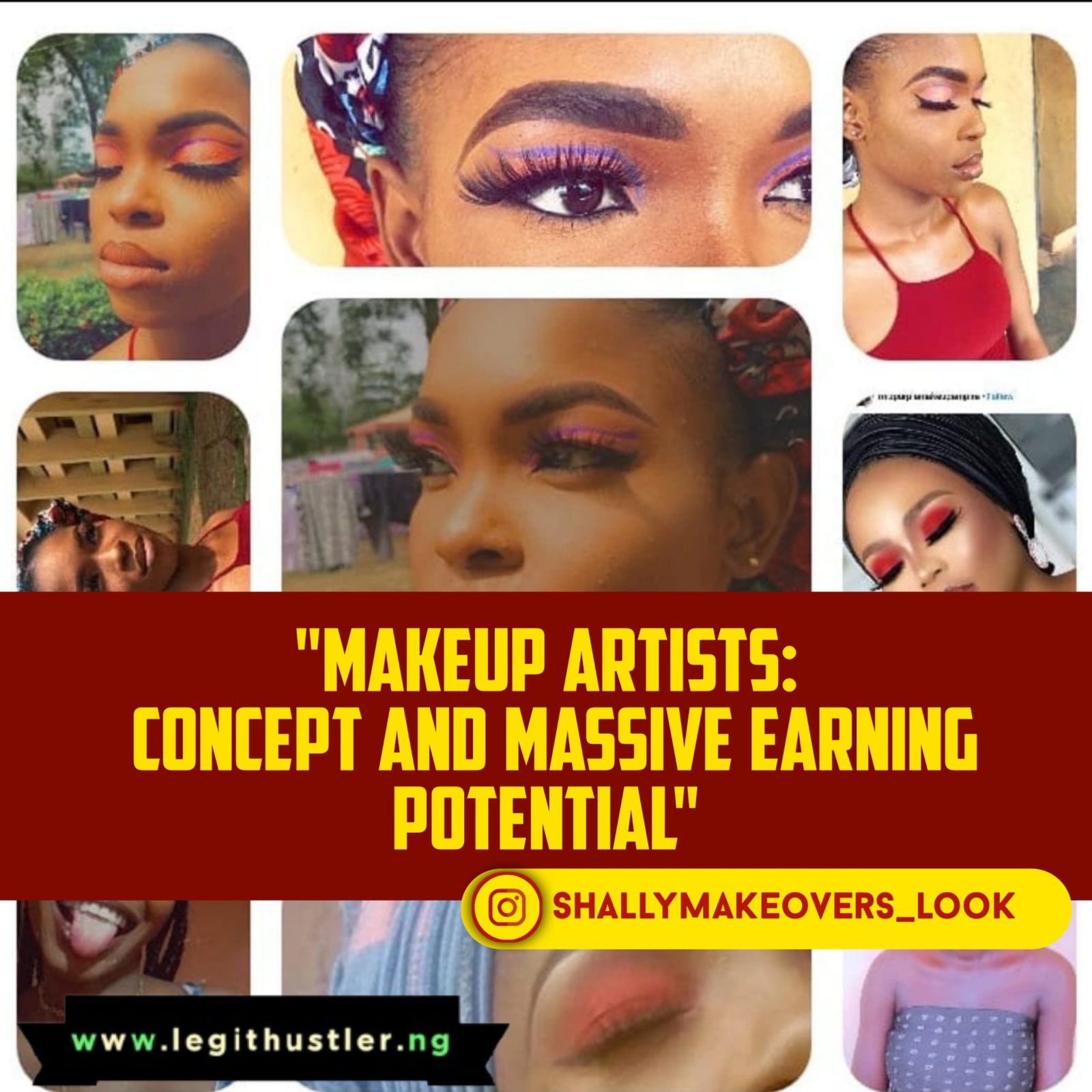
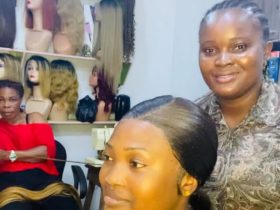
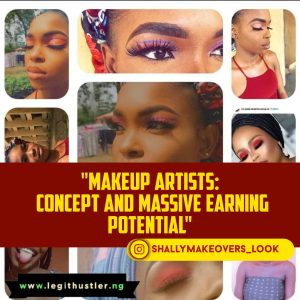


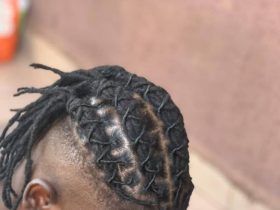
This is great information and very well read. This gives alot of great information.